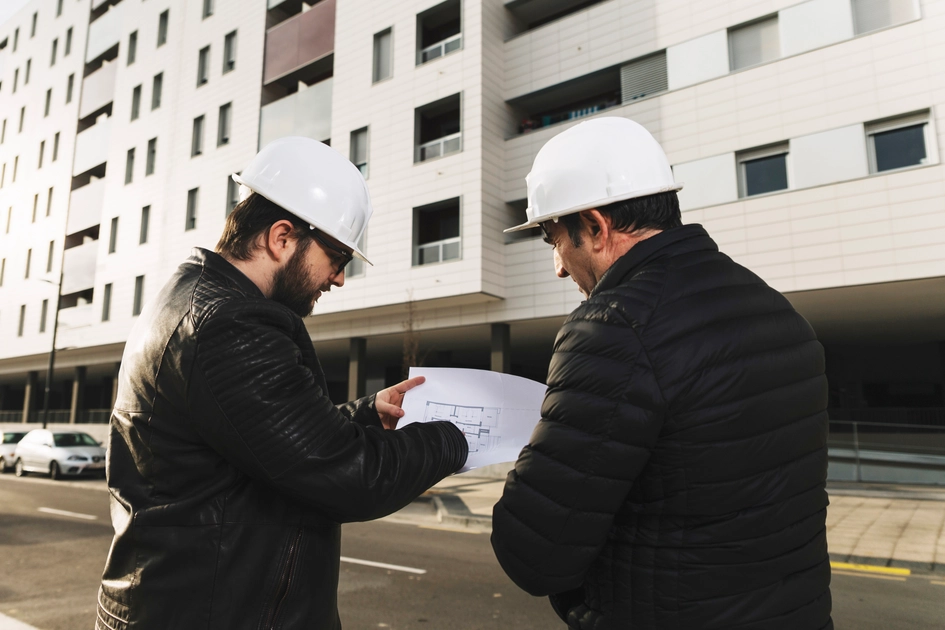There’s no denying that your property is one of your most valuable assets, and protecting its worth should be a top priority. Regular building inspections serve as your first line of defence against potential value-diminishing issues that could be lurking within your property’s walls. By conducting systematic inspections, you’re not just maintaining your building; you’re actively safeguarding your investment. These assessments can prevent costly repairs by identifying problems early, ultimately helping you maintain or even increase your property’s market value. Whether you’re a homeowner or property investor, understanding the impact of regular inspections on your property’s worth could be the key to maximising your real estate investment.
Table of Contents
The Vital Role of Regular Building Inspections in Preserving Property Value
Regular building inspections serve as your property’s health check-up, systematically documenting its condition and identifying potential issues before they escalate. These assessments create a comprehensive record that demonstrates your commitment to maintaining high property standards. Professional inspectors examine everything from structural integrity to safety systems, providing you with detailed reports that become valuable tools for maintaining and increasing your property’s market value.
How Inspections Safeguard Against Expensive Repairs
Building inspections help you catch minor issues before they transform into major problems. Early detection can save you thousands in repair costs – identifying a small roof leak before it causes extensive water damage, or spotting termite activity before structural integrity is compromised. Your proactive approach through regular inspections creates a maintenance schedule that prevents costly emergency repairs.
The Connection Between Inspections and Building Regulations
Professional inspections ensure your property maintains compliance with current building codes and safety regulations. Non-compliance can result in hefty fines and decreased property value. Your regular inspection schedule helps track regulatory changes and implements necessary updates, maintaining your property’s legal status and marketability.
Building codes evolve continuously, reflecting new safety standards and technological advancements. Your inspection reports provide documented evidence of compliance, which becomes particularly valuable during property transactions. Inspectors can identify areas requiring updates to meet new regulations, allowing you to plan and budget for necessary modifications. This proactive compliance management protects both your investment and your occupants’ safety.
The Power of Early Detection: Identifying Issues Before They Escalate
Professional building inspections serve as your property’s early warning system, detecting minor issues before they develop into major problems. Regular assessments can spot potential structural weaknesses, water damage, or electrical faults that might otherwise go unnoticed. By addressing these concerns in their initial stages, you can save up to 70% on repair costs compared to dealing with full-scale problems later.
Common Defects and Hidden Hazards Uncovered
Building inspectors routinely discover issues that property owners often miss. These include compromised foundation integrity, roof deterioration, faulty wiring, and plumbing leaks. Your inspector will examine hard-to-reach areas like crawl spaces, attics, and wall cavities where problems typically start. Each inspection provides detailed documentation of your property’s condition, creating a valuable maintenance history.
The Importance of Comprehensive Pest Inspections
Pest inspections form a vital component of your property’s health check. Termites alone cause over $5 billion in property damage annually in the United States. These silent destroyers can compromise your building’s structural integrity long before visible signs appear. Professional pest inspections use advanced technology like thermal imaging and moisture meters to detect infestations at their earliest stages.
Modern pest inspection techniques include acoustic detection systems and fibre optic cameras to locate pest activity within walls and other concealed areas. Your inspector will identify potential entry points, assess previous damage, and recommend targeted prevention strategies. This systematic approach helps maintain your property’s structural integrity while protecting your investment from costly pest-related repairs.
Decoding the Building Inspection Report: What Every Homeowner Needs to Know
Building inspection reports provide a detailed snapshot of your property’s condition, highlighting both existing issues and potential future concerns. These comprehensive documents serve as your roadmap for maintaining and improving your property’s value. The report typically covers structural integrity, safety hazards, code violations, and maintenance recommendations, giving you a clear picture of your property’s health.
Understanding Key Findings and Recommendations
Your inspection report prioritises findings into different categories based on severity. Red flags include structural defects, electrical hazards, and water damage, while minor issues might include cosmetic imperfections or routine maintenance needs. The recommendations section outlines specific actions needed to address each concern, often including estimated timeframes for repairs and potential consequences if left unaddressed.
Using the Report for Informed Decision-Making
Transform your inspection report into an actionable maintenance strategy by creating a timeline for addressing identified issues. Prioritise safety-related repairs and structural concerns, followed by preventive maintenance tasks. Your report serves as powerful leverage during property negotiations and helps you make data-driven decisions about renovations or upgrades.
The report’s findings can guide your budget planning for future maintenance and improvements. Consider obtaining quotes from qualified contractors for major repairs identified in the report. This proactive approach helps you maintain your property’s value while preventing small issues from becoming costly problems. Many homeowners use their inspection reports to develop five-year maintenance plans, ensuring systematic property upkeep.
Building Longevity: How Regular Inspections Ensure Your Property Stays Strong
Regular building inspections serve as your property’s health check-up, detecting potential issues before they escalate into major problems. Through comprehensive assessments, you can maintain your building’s structural integrity while protecting your investment for decades to come. Professional inspectors can extend your property’s lifespan by up to 20-30 years through early detection and preventive maintenance recommendations.
Structural Integrity from Roof to Foundation
Your building’s structural elements face constant stress from weather, usage, and time. Professional inspectors examine load-bearing walls, foundation settling, roof structure, and support beams for signs of deterioration. Early detection of structural issues can save you up to 70% on repair costs compared to addressing problems after they’ve progressed. The inspection process includes moisture testing, crack monitoring, and assessment of building materials’ condition.
Evaluating Compliance with Australian Building Codes
Australian building regulations continuously evolve to enhance safety and efficiency standards. Regular inspections ensure your property maintains compliance with current building codes, including fire safety requirements, accessibility standards, and energy efficiency regulations. Non-compliance can result in penalties of up to $50,000 and significantly impact your property’s value.
The Building Code of Australia (BCA) updates annually, introducing new requirements for structural sufficiency, safety, health, and sustainability. Your inspector will verify compliance across multiple areas, including fire resistance levels, emergency exits, ventilation systems, and energy efficiency measures. Properties meeting or exceeding current standards typically command 15-20% higher market values than those requiring compliance upgrades.
Ensuring Confidence in the Regular Building Inspection Process
Understanding the inspection process is crucial for homeowners looking to maintain their property’s value. Regular inspections not only help identify potential issues but also provide peace of mind, knowing that your home is in good condition. With the right approach, you can navigate this process confidently and effectively.
What to Expect During a Professional Inspection
A thorough building inspection typically takes 2-3 hours and covers every accessible area of your property. The inspector will examine structural elements, electrical systems, plumbing, roofing, and foundation. You’ll receive detailed documentation, including photographs of problem areas and a comprehensive report outlining both existing issues and potential future concerns. This systematic approach ensures no critical aspects of your property’s condition are overlooked.
Choosing the Right Building Inspector for Your Needs
Your building inspector should hold proper licensing and carry professional indemnity insurance. Look for professionals with at least 5 years of experience and membership in recognised industry associations. Request sample reports and verify their expertise with your specific property type – whether residential, commercial, or industrial. The right inspector will communicate clearly and welcome your questions throughout the process.
Consider seeking recommendations from real estate professionals or previous clients. Review the inspector’s specialisations – some excel in heritage properties, while others focus on modern constructions. Verify their use of advanced inspection tools like thermal imaging cameras and moisture meters. Quality inspectors provide detailed cost estimates for recommended repairs and maintain relationships with reliable contractors for necessary follow-up work.
Conclusion
Regular building inspections serve as your property’s shield against value depreciation. By implementing systematic checks, you protect your investment while simultaneously enhancing its market worth. These inspections enable you to maintain optimal property conditions, address issues promptly, and demonstrate your commitment to quality maintenance. When you prioritise regular inspections, you’re not just preserving your property’s current value – you’re actively building its future worth. Your property’s long-term success largely depends on how well you monitor and maintain it today.
FAQs
How can regular building inspections help maintain my property’s value?
Regular building inspections provide an opportunity to identify potential issues early, helping you avoid severe damage and costly repairs. By ensuring compliance with regulations, inspections help ensure that your property remains structurally sound and well-maintained.
What do building inspections typically cover?
Building inspections not only assess the structural integrity of your property but also inspect the electrical and plumbing systems. The inspection report will provide insights into any hidden issues or potential hazards, allowing you to make informed decisions about necessary repairs.
Why is it important to have a home inspection before purchasing a property?
A home inspection is crucial as it helps you understand potential risks and identify any potential issues or defects before they become major problems. Early inspections can prevent accidents or injuries, ensuring that the building complies with relevant regulations and is safe for occupancy.





